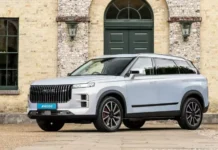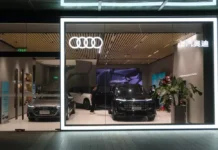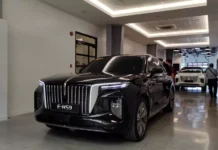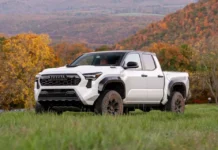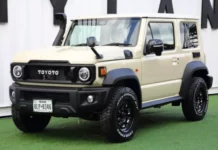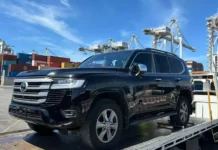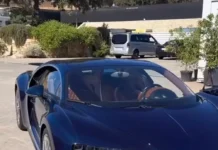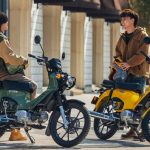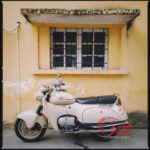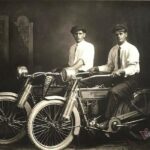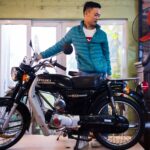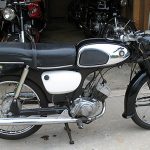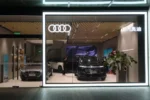“Moto Circus” is the name of a motorcycle shop located on Phung Hung Street in Hanoi. While the shop may not have flashy advertising signs, it boasts a collection of over a dozen American bikes, including the Rebel, Harley Davidson Fat Boy, Honda VTX, as well as Japanese Spacy scooters and Thai Honda Dream. Each bike in the collection is unique and represents a careful selection by Do Quang Tu, born in 1977, Hanoi, who has dedicated himself to seeking, collecting, and selling motorcycles.
Among the collection, the 1999 Honda Cub holds a special place for Tu. Despite not being the most expensive or unique bike, the Honda Cub serves as a reminder of his humble beginnings in the industry 30 years ago. At the age of 15, he followed in his father’s footsteps, importing Japanese motorcycles for sale.
Even as a well-known motorcycle dealer in Hanoi, Tu never abandoned his passion for the circus. In the 90s, he was a talented aerial acrobat who garnered numerous gold and silver medals at national and international circus festivals.
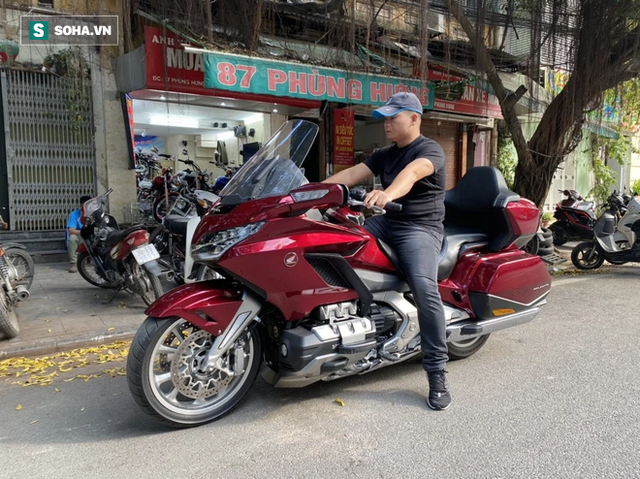
“Motorcycles in my blood”
Tu recalls a time in the 90s when motorcycles became a symbol of “coolness” in Vietnam. Imported bikes were highly valued, often equivalent to the price of gold or even thousands of dollars. Owning a Dream in the early 90s was as prestigious as owning a Honda SH scooter today.
In addition to new imports, pre-owned Japanese bikes, also known as “used bikes,” were popular among Vietnamese customers due to their attractive designs and durability.
Being part of a family of motorcycle traders, Tu started his journey at the age of 15 as he studied at the circus school. He assisted his father in unloading containers and importing Cub and Dream bikes from Japan for sale.
Despite being the youngest among the group of “used bike hunters,” Tu quickly proved his impressive skills and was able to import large quantities of high-quality bikes.
These bikes were transported to Vietnam by sea, passing through Cambodia and often took up to six months to arrive. Sometimes, there were cases of bikes having engine problems or parts corroded by saltwater. Some models also presented challenging obstacles, but Tu overcame them with determination.
“If you accidentally get a 3-digit 81 Presscub, you have to replace more than 40 parts to make it a functioning bike. In the end, it becomes a loss,” Tu said.
With time, Tu built strong connections with container owners and began memorizing frame numbers and engine numbers for each bike model. This allowed him to provide accurate information, increasing his chances of winning bids.
Today, in his 40s, Tu owns an impressive collection of Cub, Rebel, Spacy, and Dream bikes, each worth hundreds of millions of dong.
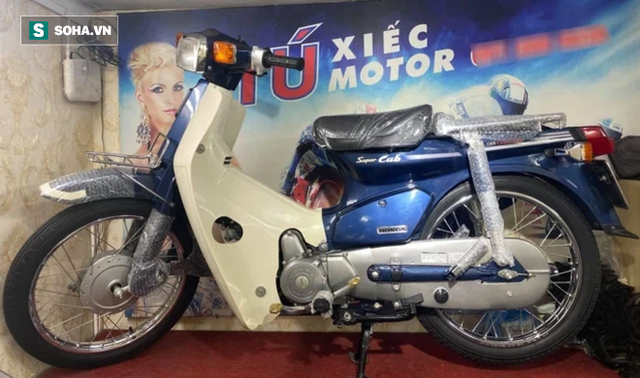
Tu’s legendary Honda Super Cub, worth 200 million.
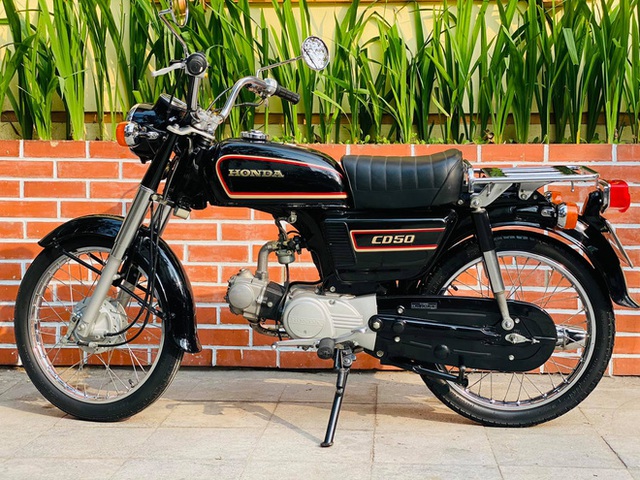
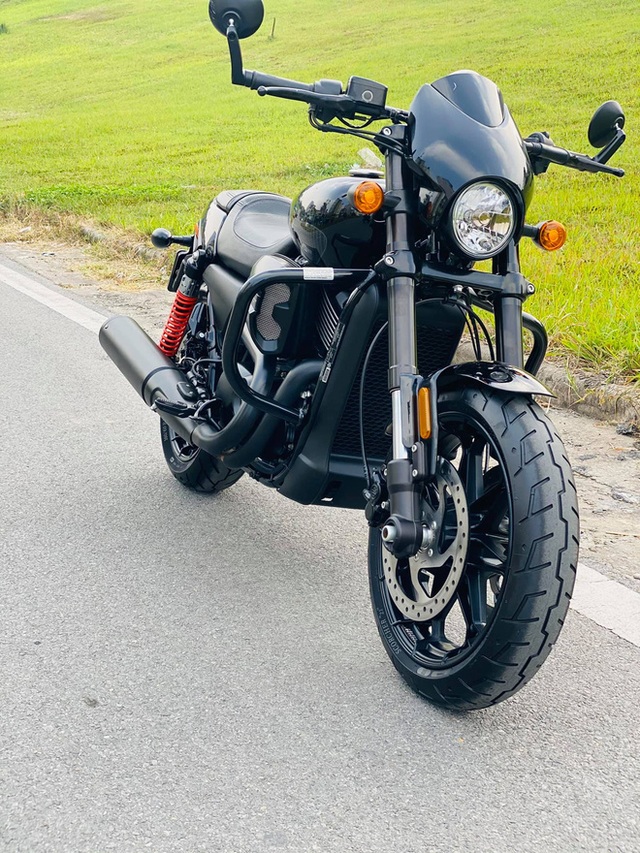
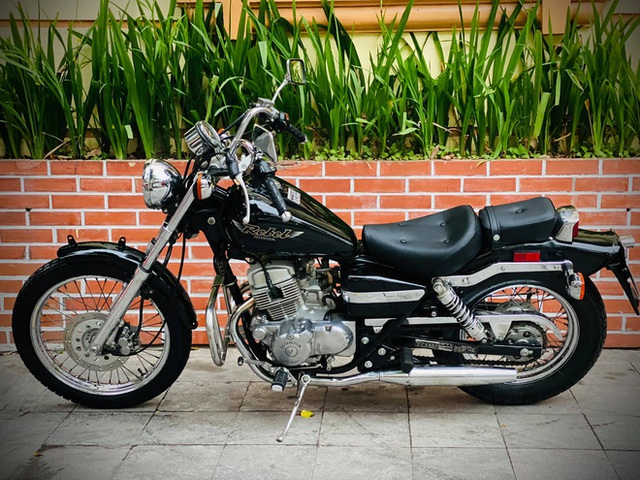
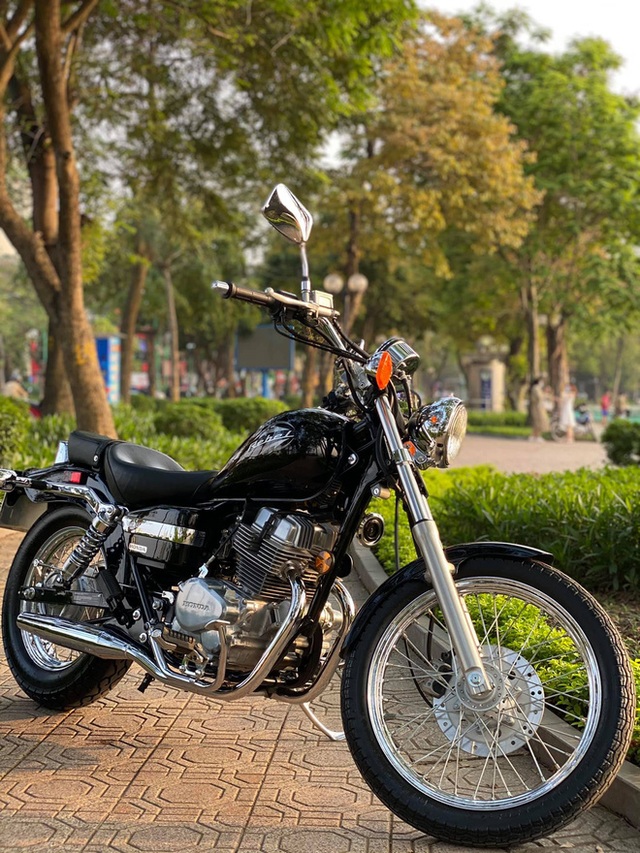
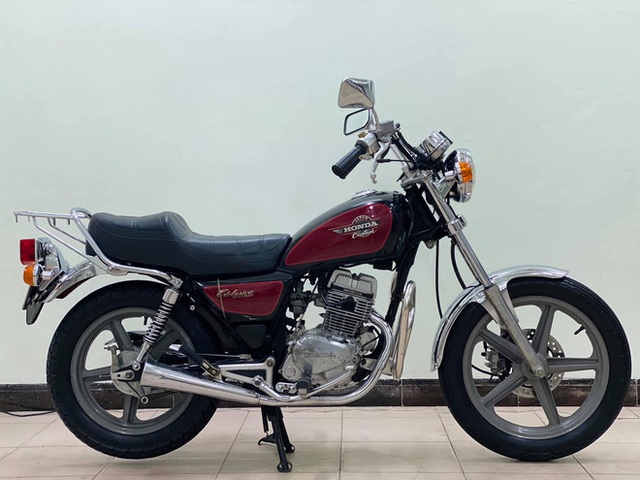
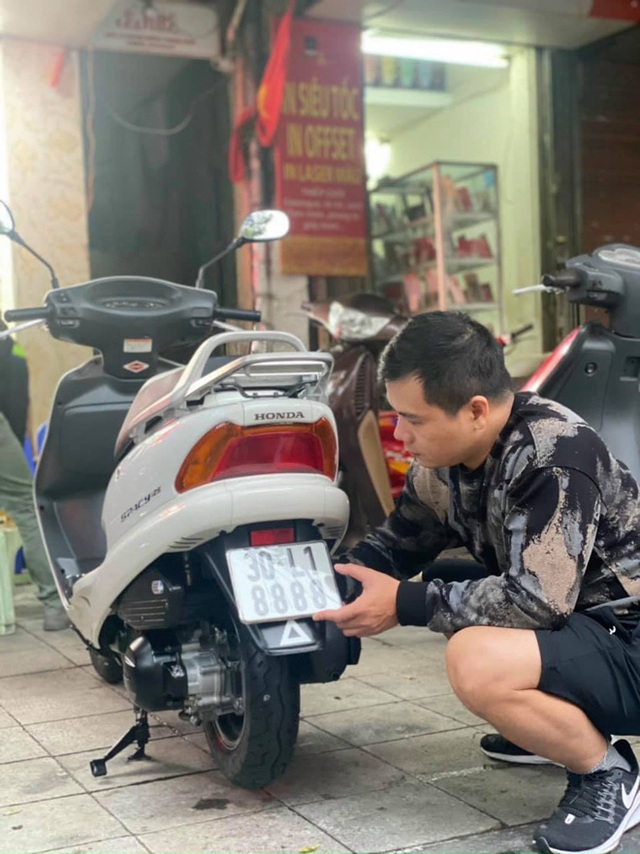
Tu’s impressive collection of motorcycles.
Running a business involves careful calculations, and Tu doesn’t hesitate to invest in the bikes he loves.
In his younger years, Tu was famously willing to spend nearly $1,300 to acquire a prestigious Cub bike that was priced at $800 back then.
Even today, at his home on Than Street, Tu cherishes an 82-year-old Motobecane DS45 – a bike favored by Emperor Bao Dai. He purchased this bike for a considerable sum of $20,000 (approximately 470 million dong) from a seller in the Southwestern region. At its peak in 2016, Tu owned around 30 bikes of different models at once, driven by his strong affinity for the Spacy model.
Although his mother suggested selling some of the motorcycles that fill their small house, Tu refused.
“What I possess is something not everyone can have. These motorcycles are authentic, vintage models from renowned brands, truly beautiful. The motorcycle business is in my blood,” shared the passionate shop owner.
“The circus is my destiny, a place for me to be kind and careful”
Tu entered the circus school to pursue his studies, but he unexpectedly found his calling in aerial acrobatics. Despite the impact his circus career had on his business due to extended periods of performing abroad, Tu remained dedicated to his passion for the circus.
Today, as a respected owner of a well-established vintage motorcycle dealership in Hanoi, Tu stays connected to the circus. He plays a crucial role in ensuring the safety of aerial acts at the National Circus Theater.
“For me, the circus is my destiny. It’s a place where I can be kind and cautious,” Tu revealed.
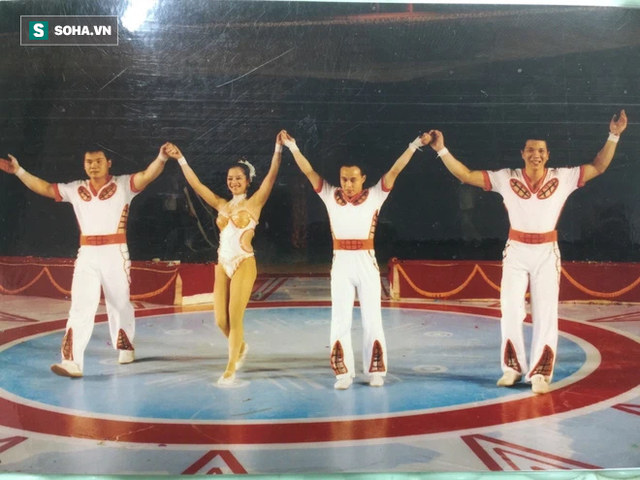
Do Quang Tu (leftmost) with his colleagues performing at the circus.
Tu recounted an incident during his performance in Taiwan. After the show, the management approached him privately and offered to pay him extra if he deliberately failed to catch his partner. They believed that a fall would make the act more thrilling and suggested failing to catch his partner once or twice to please the audience. However, despite the tempting offer worth several months of income from motorcycle trading, Tu declined.
“All it takes is one moment of hesitation and failing to catch my partner to instill fear and shatter their confidence. In this industry, I understand the dangers, even the risk of losing my life. That’s why I would never do that,” he emphasized.
In 2006, during a circus festival in Hue, Tu’s circus group had to climb a much higher metal structure than their usual circus tent. Reflecting on their victorious performance and receiving the gold medal, Tu jokingly remarked that perhaps the organizers gave them the medal for successfully conquering the towering structure.
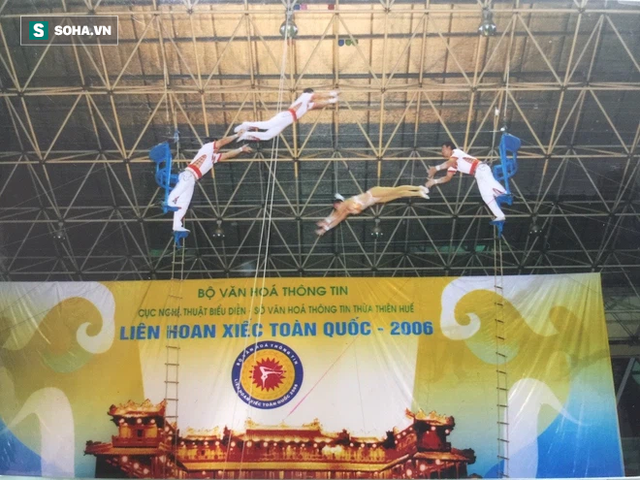
Do Anh Tu’s aerial act with a quang truc (aerial bar) won the Gold Medal at the national circus festival in 2006.
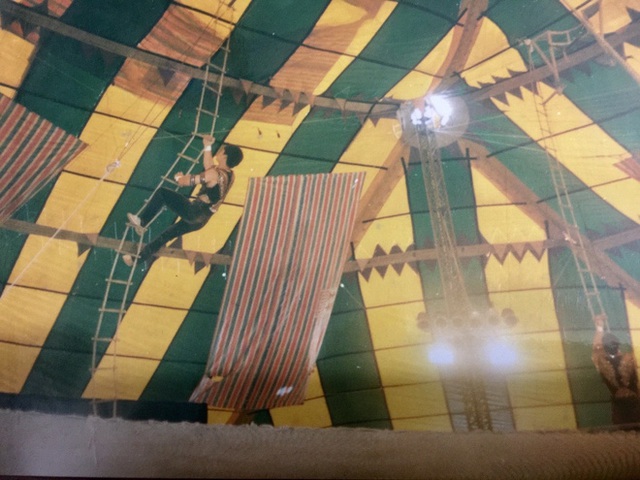
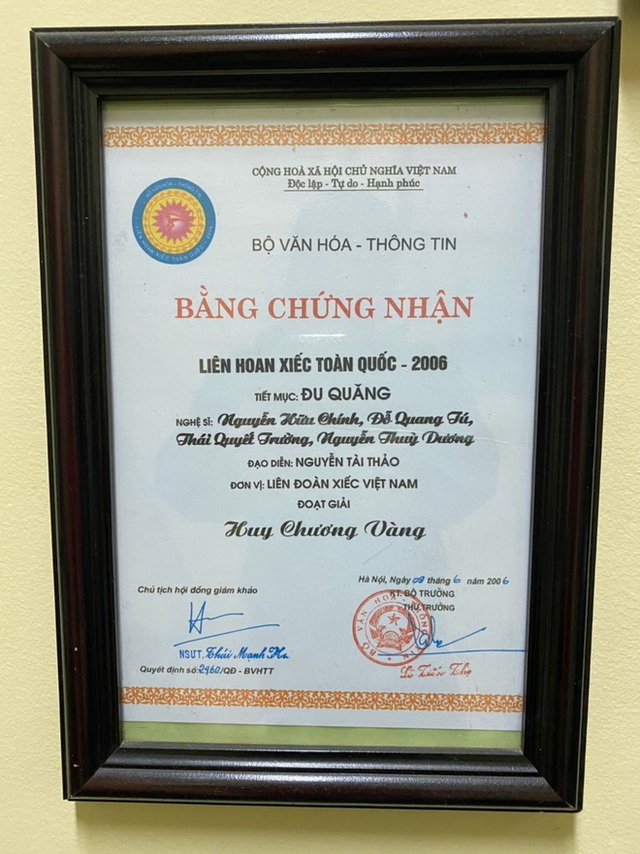
Preparing for a circus act requires meticulousness. Setting up the metal structure alone for an aerial act can take up to a week. Over time, the process has become more efficient, but before performing, Tu and his colleagues only have about 10 minutes to check their props and take a 5-minute break to relax their muscles. Every step is timed precisely to ensure a flawless performance.
Reflecting on his experiences, Tu appreciates how the circus has instilled in him discipline, dexterity, and valuable lessons that he also applies in the motorcycle business.
There have been instances when Tu had to accept returns from customers due to specific reasons. Despite carefully selecting and finding beautiful bikes, he understands that circumstances can change. In some cases, certain bike models may experience starting issues due to local climate influence. In such cases, Tu promptly provides support and explanations to assist customers in understanding the situation.
Thanks to his dedication to providing high-quality motorcycles, Tu’s shop attracts customers from various provinces, despite being located in Hanoi. Most customers browse through photos of the bikes on Facebook before eagerly transferring hundreds of millions of dong without hesitation.
“I believe that just as setting up a prop or preparing a metal structure requires meticulousness and personal care, selling motorcycles also requires the same level of attention,” Tu concluded.

